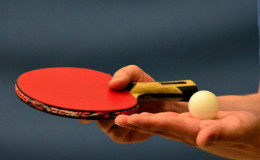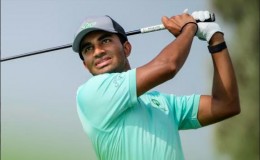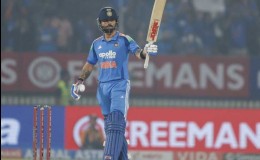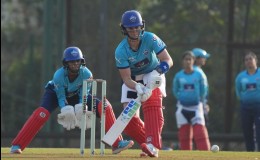A glance at different international teams gives one a fair idea of the alumni of past ICC U19 Cricket World Cups. Just about every side is led by a player who figured in this tournament even though the focus often is on the trio of Virat Kohli, Steve Smith and Kane Williamson.
That is because these three played together in the 2008 edition and are now acknowledged as being among the best batsmen of their generation while also leading their national sides astutely. The story though is not much different for other teams, nor have the previous or following U19 CWCs been any less productive.
Smith’s batting averages have been astounding in Test cricket with him being on the top spot in the MRF Tyres ICC Test Player Rankings for two years, while Kohli has consistently been top-ranked in both shorter versions of the game. Kane Williamson too is a regular in the top charts across formats.
But then Joe Root of England, who played in the 2010 tournament, enjoys a similar status in international cricket while Sarfraz Ahmed (Pakistan), Dinesh Chandimal (Sri Lanka), Jason Holder (Windies) and Graeme Cremer (Zimbabwe) are among the others to have been at the helm.
If Kohli led India to victory in 2008, Sarfraz had done so in the edition preceding it. The Pakistan captain also has the distinction of leading his side to victory in a senior ICC competition, an epic win over favourites India in the 2017 Champions Trophy making it one of the most cherished moments in Pakistan’s history.
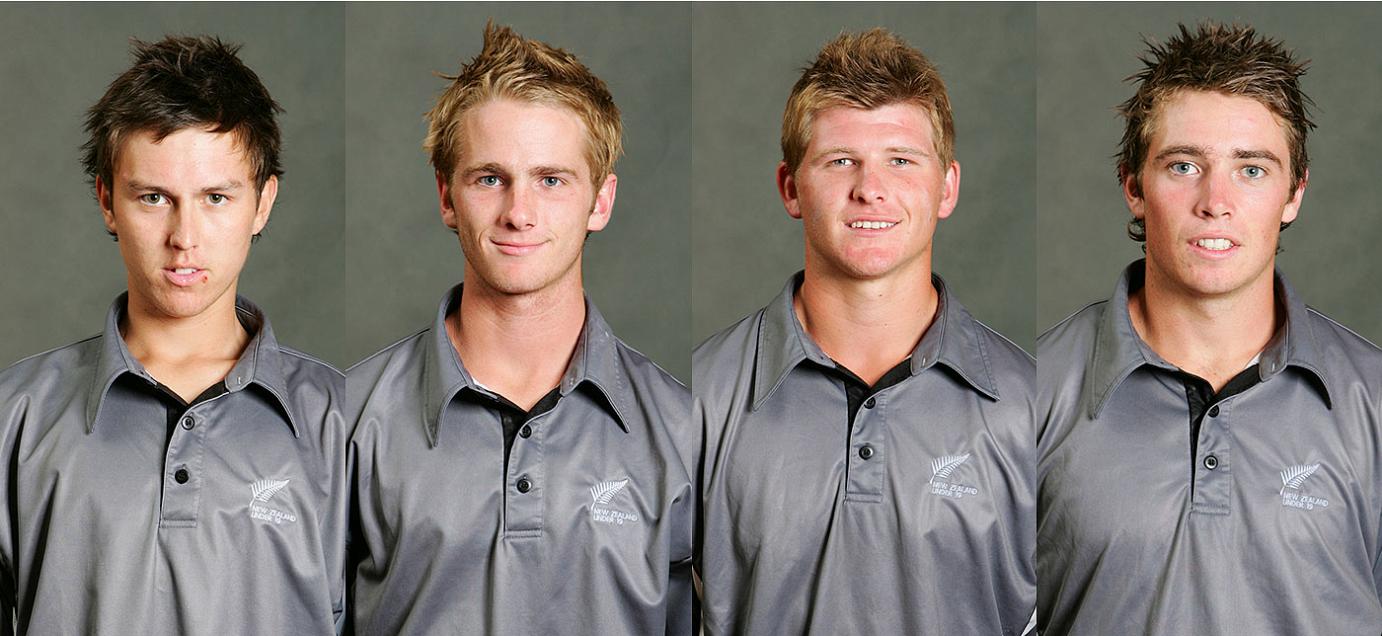 Kohli credits the U19 CWC for his development and also remembers his contemporaries from the time, as does Williamson.
Kohli credits the U19 CWC for his development and also remembers his contemporaries from the time, as does Williamson.
India captain Virat Kohli: “The ICC U19 World Cup was a very important milestone in my career. It helped us get a good platform to build on and make our careers from thereon, so it holds a very importance place in my mind and heart. It’s very important to understand and respect the opportunity it provides you and as I said, for me, it holds a very special place in my heart.
“I remember playing against Kane. He was someone who always stood out in the team, his batting ability was very different from the other players who were around. Steve (Smith) I did not quite play against at the U19 level, so I didn’t watch him bat, but he has come a long way in his career as well. It is good to know that so many people from that batch, not just three of us captaining our countries, but apart from that a lot of players have played for their respective countries.”
New Zealand captain Kane Williamson: “It is a great stepping stone. Playing international cricket within your age group allows players to see slightly higher standards, the best of the best from the under-19 perspective, so (it is) a great tournament to be involved in.
“It is always fascinating as well that a number of guys you play against and play with, to see their progress. Often, when you meet players, you talk about the Under-19 World Cup. Each team had a few guys who are playing international cricket, which is good.
.
“You don’t get many opportunities to play World Cups, obviously at the top level – it is once every four years, if you are fortunate enough to be involved. So the opportunity to play at the age-group level is a very exciting opportunity and one that should be enjoyed.”
In the past, there have been captains like Brian Lara, Inzamam-ul-Haq and Sanath Jayasuriya, all alumni of the first edition in 1998 and known for their accomplishments as players rather than of captains, all scoring in excess of 10,000 runs in at least in one form of the game.
Michael Clarke (Australia), Michael Atherton (England), Virender Sehwag (India), Brendan McCullum (New Zealand), Inzamam-ul-Haq (Pakistan), Angelo Mathews (Sri Lanka), Graeme Smith (South Africa), Chris Gayle (Windies) and Tatenda Taibu (Zimbabwe) are among the leading players to come through the U19 CWC system.
U19 World Cup players who went on to lead full-member sides:
Australia – Michael Clarke, Cameron White, George Bailey, Steve Smith, Aaron Finch, David Warner
Bangladesh – Rajin Saleh, Mohammad Ashraful, Mashrafe Mortaza, Shakib Al Hasan, Mushfiqur Rahim, Tamim Iqbal
England – Michael Atherton, Nasser Hussain, Alastair Cook, Graeme Swann, Eoin Morgan (played in U19 CWC for Ireland but captained England), Joe Root, Jos Butler, James Taylor
India – Virender Sehwag, Suresh Raina, Virat Kohli, Rohit Sharma
Ireland – William Porterfield, Kevin O’Brien, Andrew White, Gary Wilson.
New Zealand – Lee Germon, Chris Cairns, Brendan McCullum, Ross Taylor, Kane Williamson, Kyle Mills, Tom Latham
Pakistan – Inzamam-ul-Haq, Shoaib Malik, Abdul Razzaq, Salman Butt, Azhar Ali, Sarfraz Ahmed
Sri Lanka – Sanath Jayasuriya, Thilina Kandamby, Angelo Mathews, Dinesh Chandimal, Upul Tharanga, Thisara Perea, Lahiru Thirimanne
South Africa – Graeme Smith, Johan Botha, Hashim Amla, Dean Elgar
Windies – Jimmy Adams, Brian Lara, Ramnaresh Sarwan, Chris Gayle, Denesh Ramdin, Dwayne Bravo, Darren Ganga, Ridley Jacobs, Sylvester Joseph, Darren Sammy, Jason Holder, Kieron Pollard, Jason Mohammed, Marlon Samuels
Zimbabwe – Tatenda Taibu, Prosper Utseya, Brendan Taylor, Elton Chigumbura, Hamilton Masakadza, Graeme Cremer

